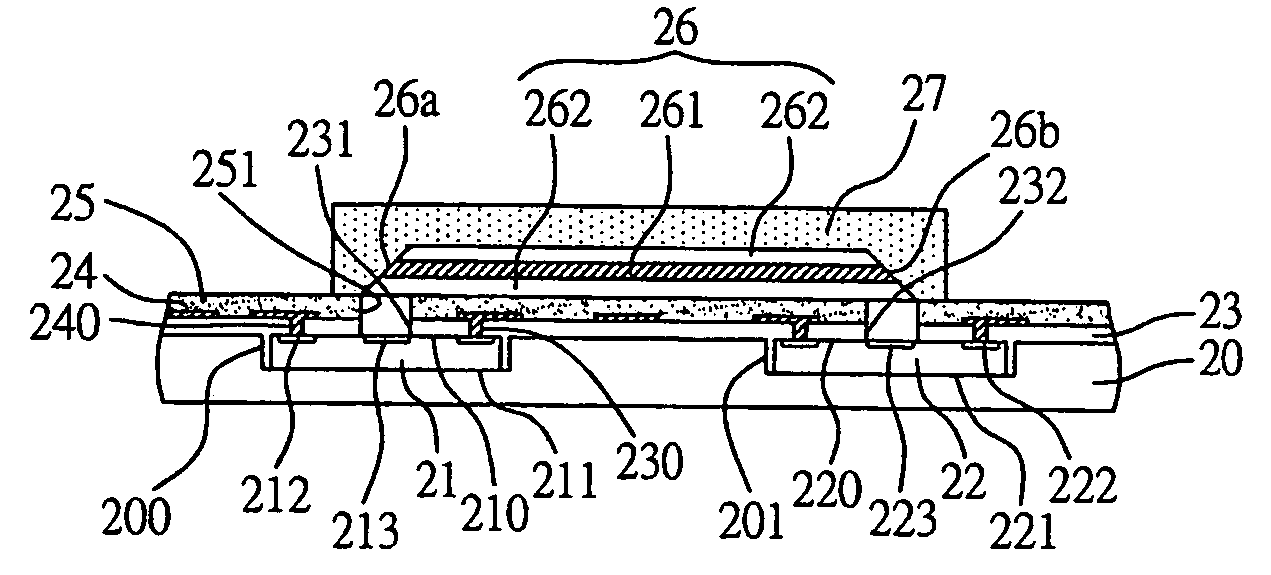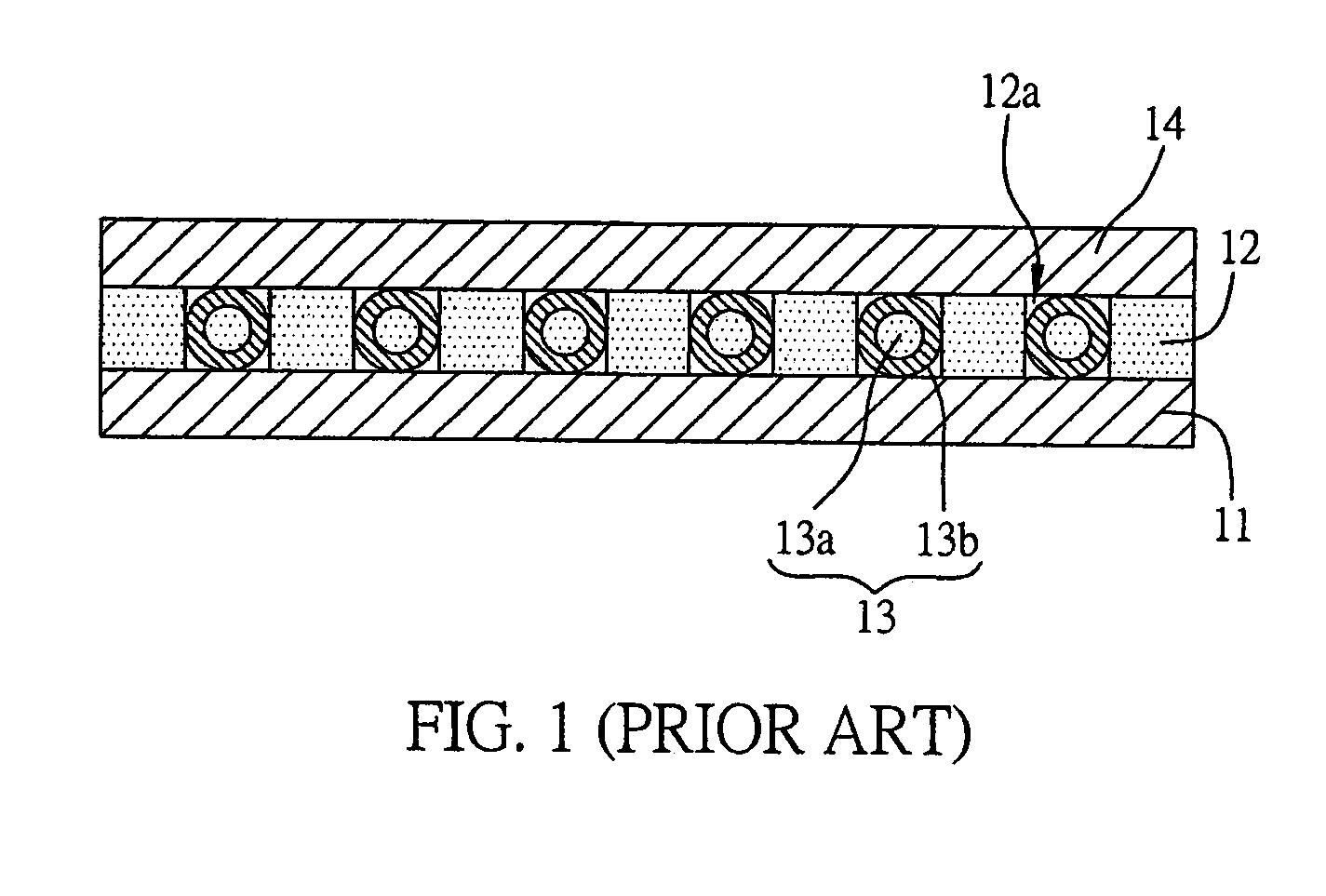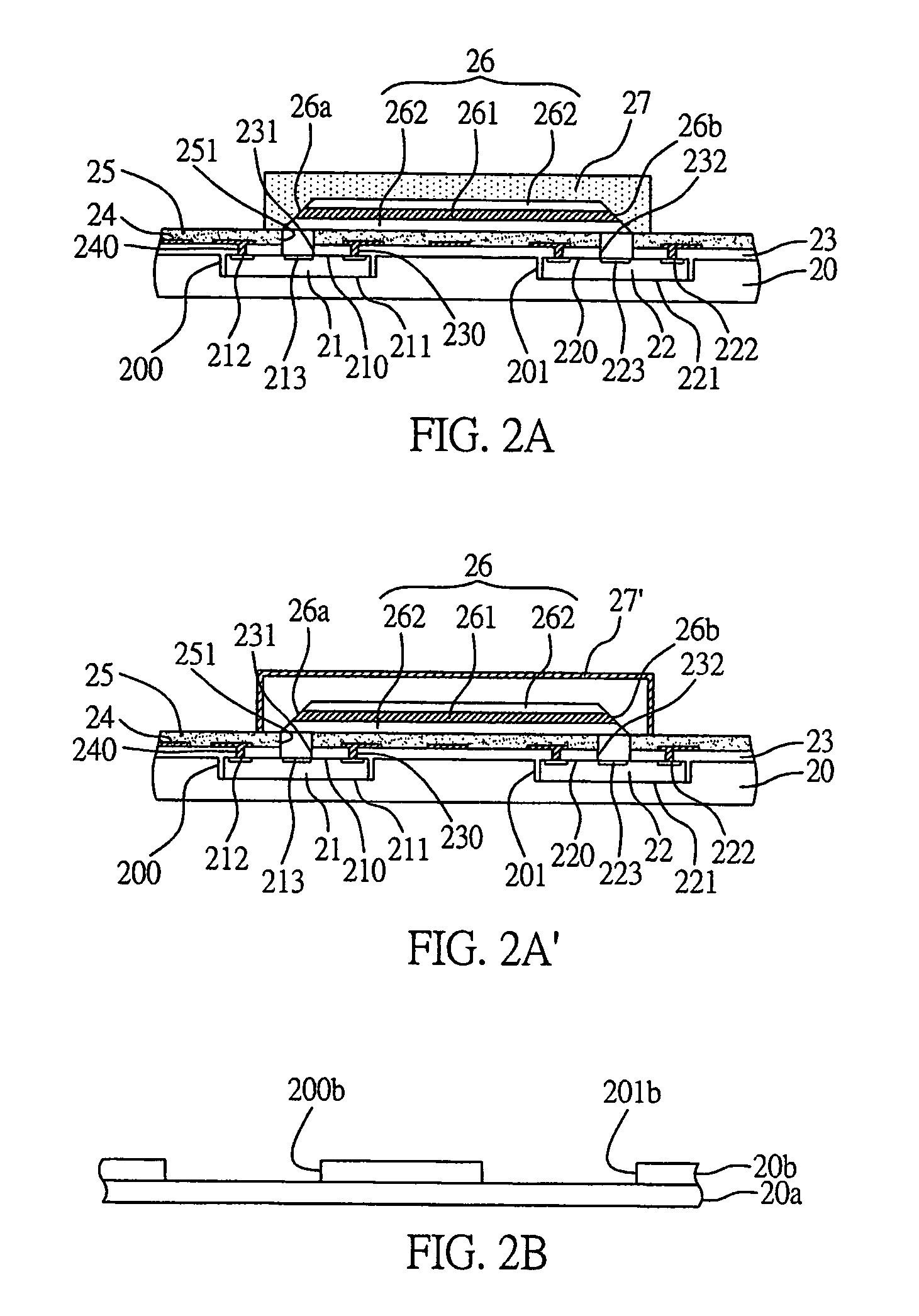Semiconductor device integrated with optoelectronic components
a technology of optoelectronic components and semiconductors, applied in the direction of semiconductor/solid-state device details, instruments, optical elements, etc., can solve the problems of increasing the conductivity, unable to achieve further increase of conductivity, and unable to increase the signal transmission rate by increasing conductivity, etc., to achieve the effect of reducing fabrication difficulty and fabrication cost, reducing the difficulty of fabrication and fabrication costs, and increasing the density of circuit wiring
- Summary
- Abstract
- Description
- Claims
- Application Information
AI Technical Summary
Benefits of technology
Problems solved by technology
Method used
Image
Examples
first embodiment
[0036]Referring to FIG. 2A, it is a cross-sectional diagram, illustrating the first embodiment of the present invention of a semiconductor device integrated with optoelectronic components.
[0037]As shown in the diagram, the optoelectronic component integrated in semiconductor device, comprises: a carrier board 20 with at least two openings 200, 201 that are not penetrating the carrier board; a first and a second optoelectronic components 21, 22 disposed in the openings respectively; a dielectric layer 23 formed on a surface of the carrier board 20 and active surface of the first and second optoelectronic components 21, 22; and a circuit layer 24 formed on the dielectric layer 23 and electrically connected to the first and second optoelectronic components 21, 22.
[0038]The carrier board 20 is an integrally formed heat sink and is made of one of metal and a ceramic material.
[0039]Beside, the carrier board 20 can be composed by stacking a plurality of carrying layers. Below is the descri...
second embodiment
[0050]As shown in FIG. 3A, it is a cross-sectional diagram, illustrating the second embodiment of the present invention of a semiconductor device integrated with optoelectronic components.
[0051]The semiconductor device integrated with optoelectronic components of the present embodiment is roughly the same with previous described first embodiment, the main differences of the semiconductor device integrated with optoelectronic components of the present embodiment is, further includes at least one waveguide 26′ formed on the surface of the insulating layer 25, and the waveguide 26′ has a transmission terminal 26a′ with a reflection surface; the transmission terminal 26a is facing to the optical active area 223 of the second optoelectronic component 22 to let the second optoelectronic component 22 transmit the signal to other optoelectronic components via the waveguide 26′, thereof expands the product's capacity.
[0052]Referring to FIGS. 3B and 3B′, the insulating layer 25 and the wavegu...
third embodiment
[0053]As shown in FIG. 3B, it is a cross-sectional diagram, illustrating the third embodiment of the present invention of a semiconductor device integrated with optoelectronic components.
[0054]The semiconductor device integrated with optoelectronic components of the present embodiment is roughly the same with previous described second embodiment, the main differences of the semiconductor device integrated with optoelectronic components of the present embodiment is, further includes a circuit build-up fabrication to form a circuit build-up structure 31 on the dielectric layer 23 and the circuit layer 24, and forms openings 31a, 31b in the circuit build-up structure 31 at locations corresponding to the optical active areas 213, 223 of the first and second optoelectronic components 21, 22 to expose the optical active areas 213, 223 of the first and second optoelectronic components 21, 22, and then the circuit build-up structure 31 is further formed with an insulating layer 25 on the su...
PUM
 Login to View More
Login to View More Abstract
Description
Claims
Application Information
 Login to View More
Login to View More - R&D
- Intellectual Property
- Life Sciences
- Materials
- Tech Scout
- Unparalleled Data Quality
- Higher Quality Content
- 60% Fewer Hallucinations
Browse by: Latest US Patents, China's latest patents, Technical Efficacy Thesaurus, Application Domain, Technology Topic, Popular Technical Reports.
© 2025 PatSnap. All rights reserved.Legal|Privacy policy|Modern Slavery Act Transparency Statement|Sitemap|About US| Contact US: help@patsnap.com



